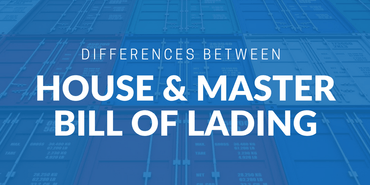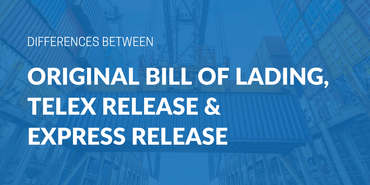
What is a commercial invoice
![]()
The commercial invoice is one of the most important documents in international trade and ocean freight shipping. It is a legal document issued by the seller (exporter) to the buyer (importer) in an international transaction and serves as a contract and a proof of sale between the buyer and seller.
Unlike the Bill of Lading, the commercial invoice does not indicate the ownership of goods nor does it carry a title to the goods being sold. It is, however, required for customs clearance purposes to calculate and assess the duties and taxes due.
The commercial invoice details the price(s), value, and quantity of the goods being sold. It should also include the trade or sale conditions agreed upon by both buyer and seller of the transaction being carried out.
It may also be required for payment purposes (such as in the event of payment via Letter of Credit and may need to be produced by the buyer to its bank to instruct the release of funds to the seller for payment.
Information required on a commercial invoice for shipping
When filling out a commercial invoice, it is extremely important to make sure that information is clearly and accurately filled out.
Which is the best commercial invoice template?
There are plenty of commercial invoice templates and samples to choose from online. While there is no fixed commercial invoice format, most of the information required is very similar and standardized across all templates. Whichever template you choose, ensure that the following details are included:
Information related to the transaction
- Invoice number
- Invoice date
- Order number
- Total sale amount
- Currency
- Payment instructions
Information related to the exporter and importer
- Exporter/seller information (name, address, phone number, etc.)
- Exporter/seller’s tax identification number (eg. VAT, EORI, etc.)
- Importer/buyer information (name, address, phone number, etc.)
- Importer/buyer’s tax identification number (eg. VAT, EORI, etc.)
- Notify party’s information
Information related to the shipping of the merchandise
- Bill of Lading number
- Forwarding agent
- HS code
- Clear description of goods (no. of packages, units, weight, etc.)
- Incoterm under which the merchandise has been sold
- Origin of merchandise
- Insurance
- Date of exportation, means of transport, and final destination
- Shipper’s signature
Difference between commercial invoice and packing list
It is of vital importance that the transaction and shipment information listed on the commercial invoice correspond to that on the packing list.
While the information required on both documents are extremely similar and both are issued by the seller/exporter, the two documents serve very different purposes.
The packing list serves a more logistical purpose with emphasis on the physical description of the goods being transported. It is a document that’s required in the event of any disputes or claims that may arise with the shipping line, customs, or between the buyer and seller for goods.
It’s also used to verify that all merchandise shipped by the exporter is received in good order and condition, as well as for stock-keeping and inventory purposes.
The commercial invoice, on the other hand, serves to detail the financial transaction for the sale of the goods being transported such as payment details, instructions, and terms.
The packing list is sent to the receiver of the goods, or consignee, while the commercial invoice is sent to the party responsible for the payment of the goods. These may be one and the same or different.
Risks of not filling out a commercial invoice accurately
It is a legal requirement to fill out a commercial invoice accurately. Failure to do so may result in lengthy hold-ups and shipping delay costs. Given that a commercial invoice is also used for customs declaration purposes, any misinformation may lead to underpayment of the correct amount of duties and taxes due and their legal ramifications.
Related Articles


